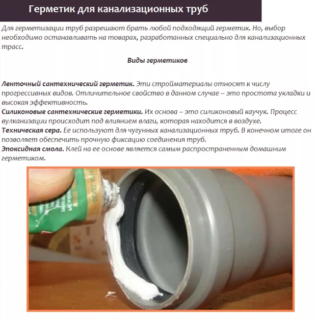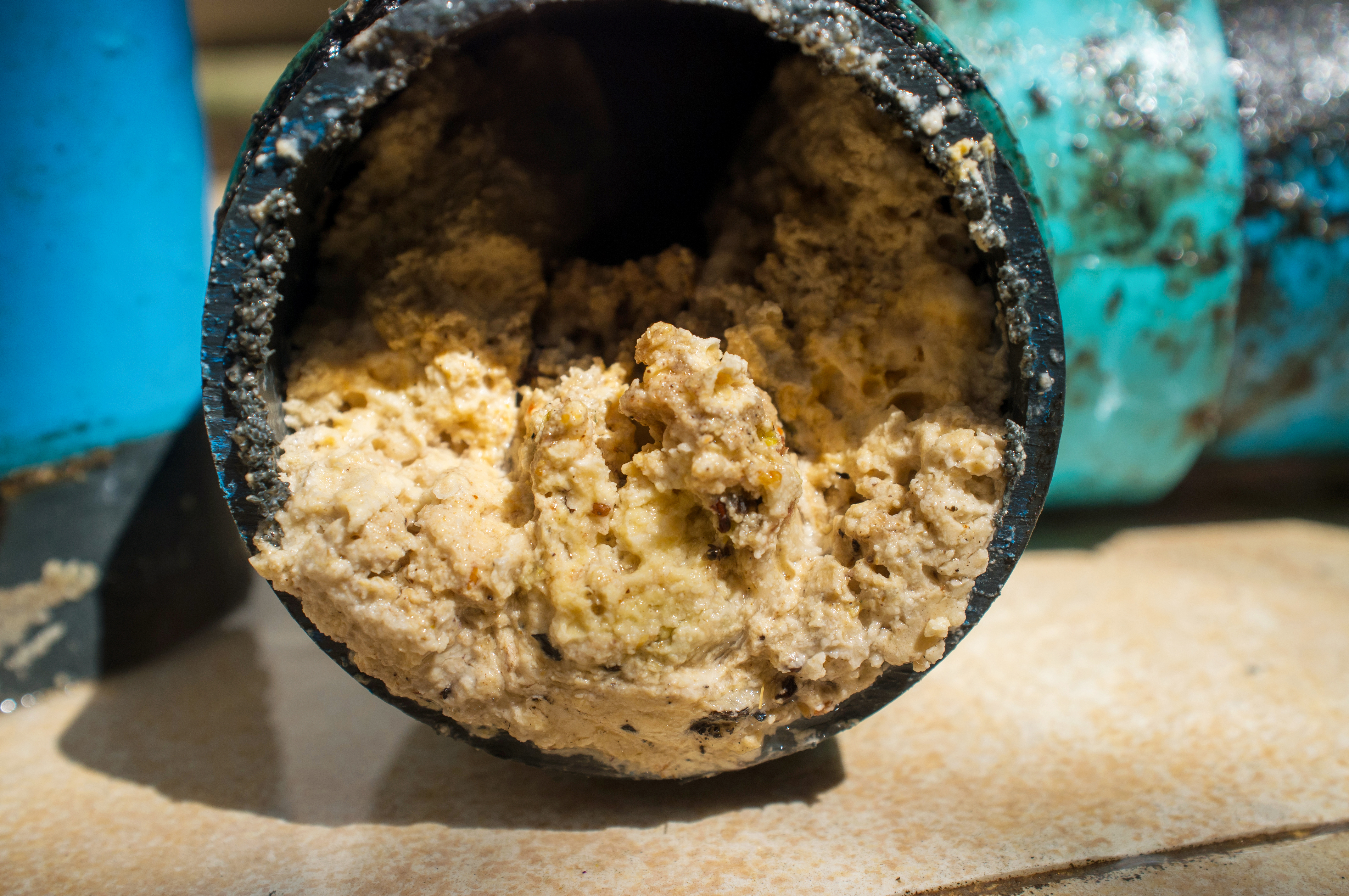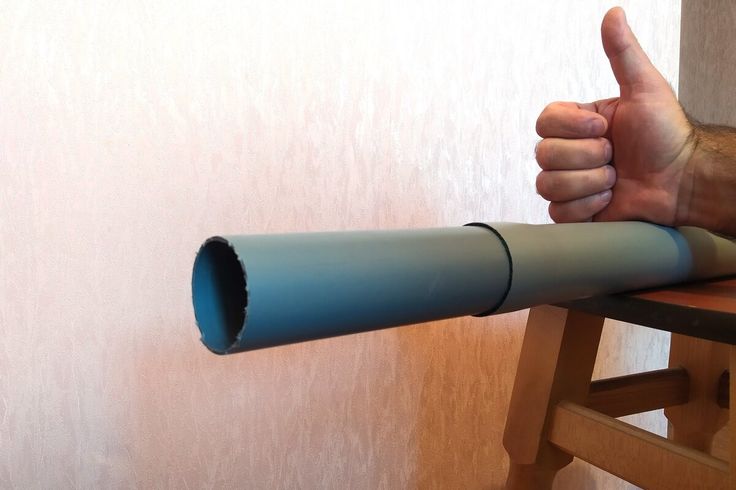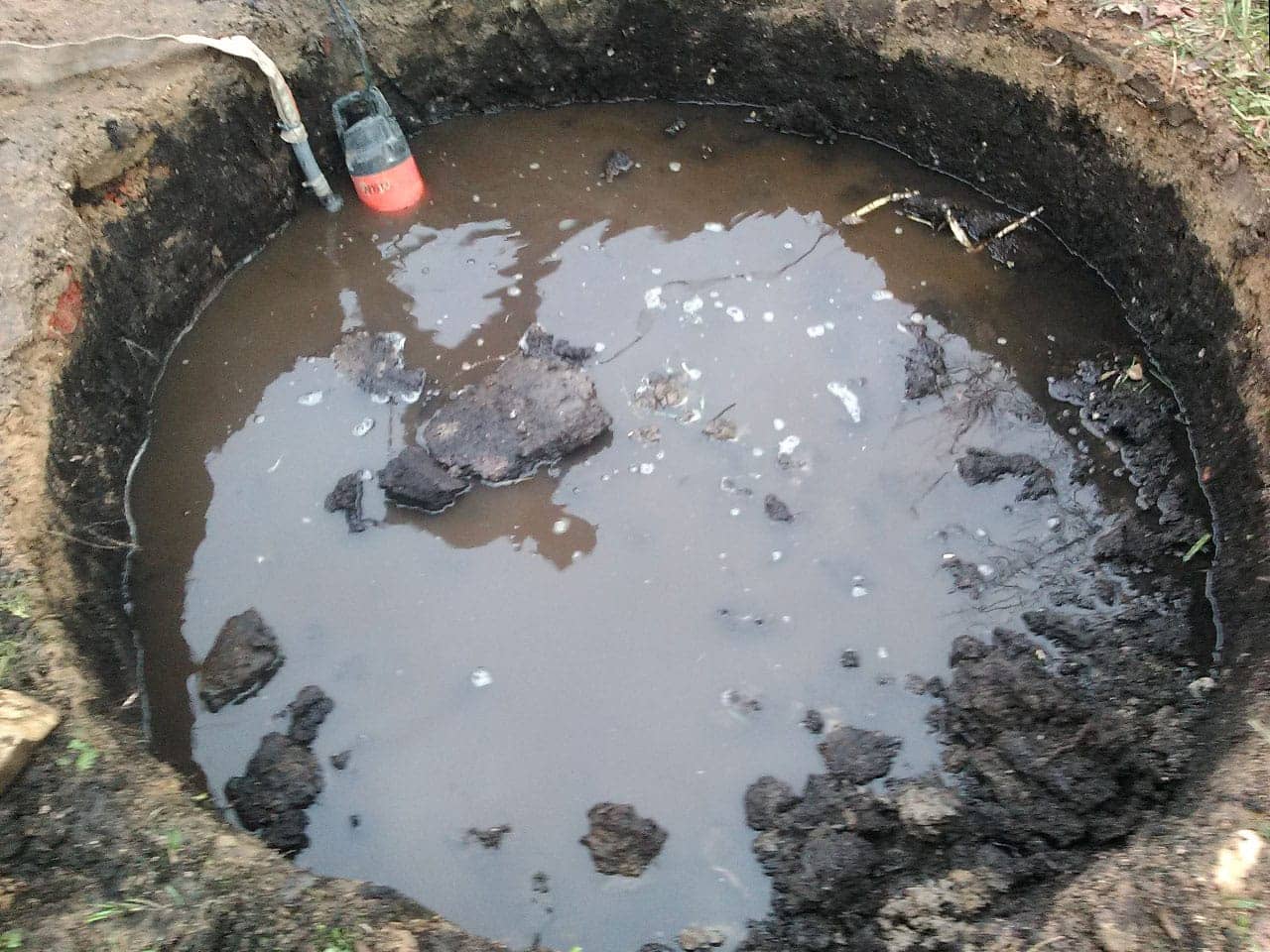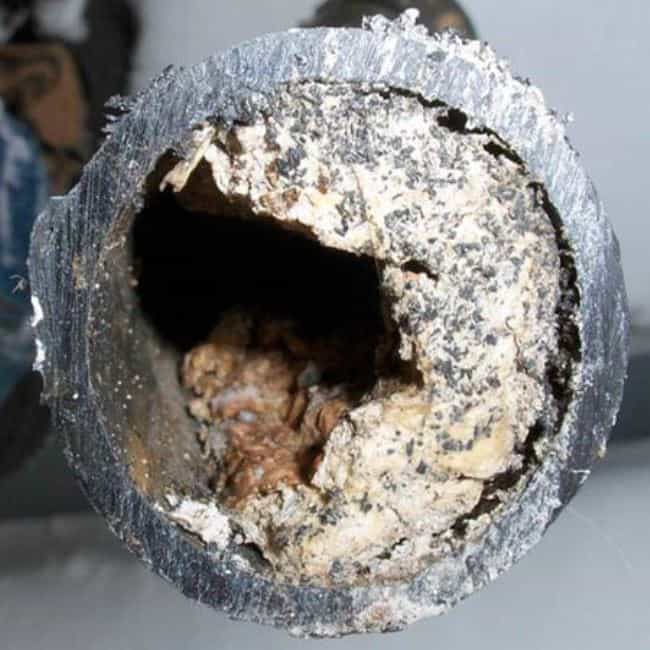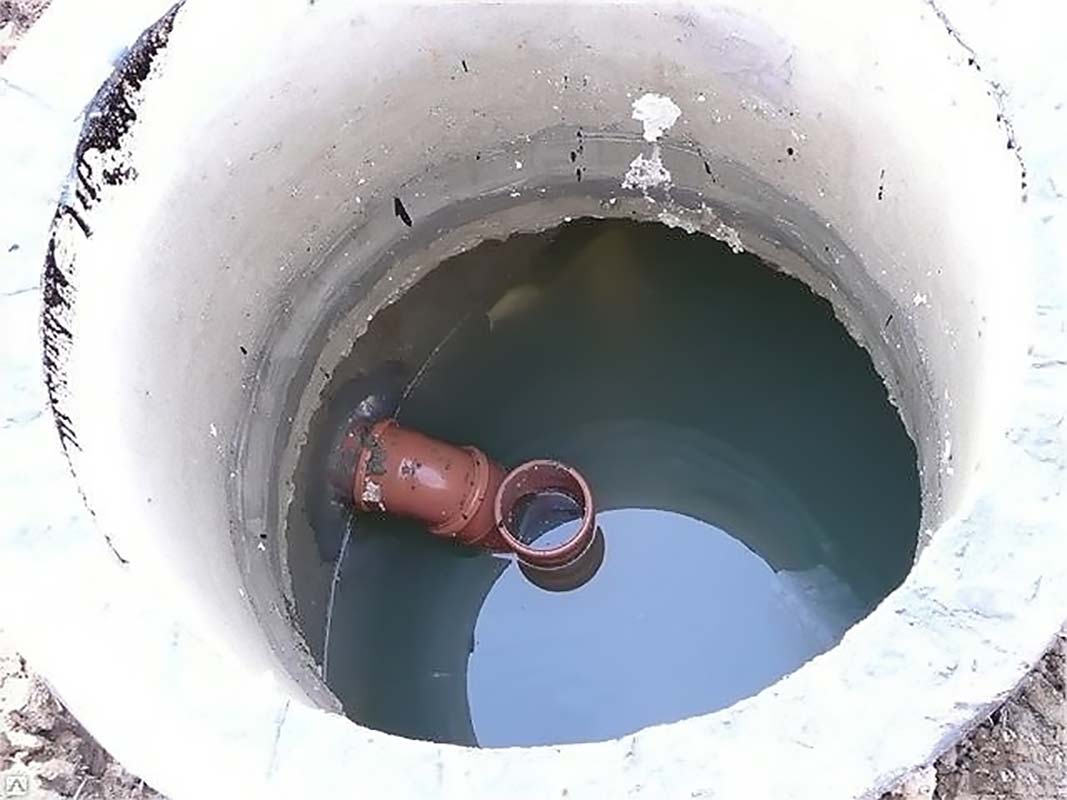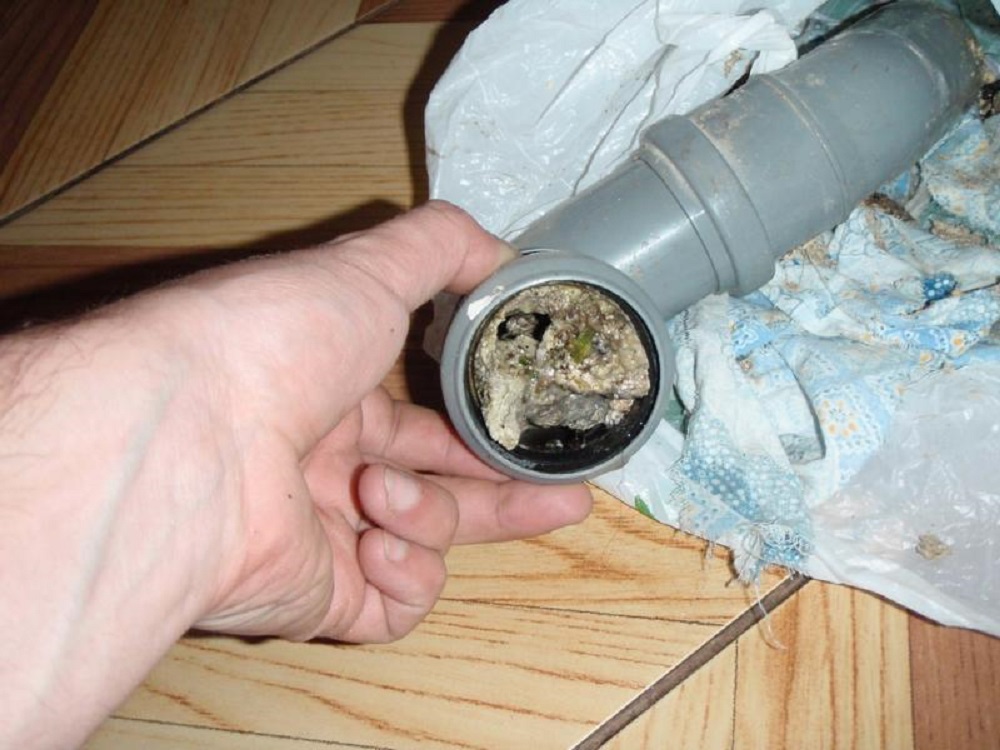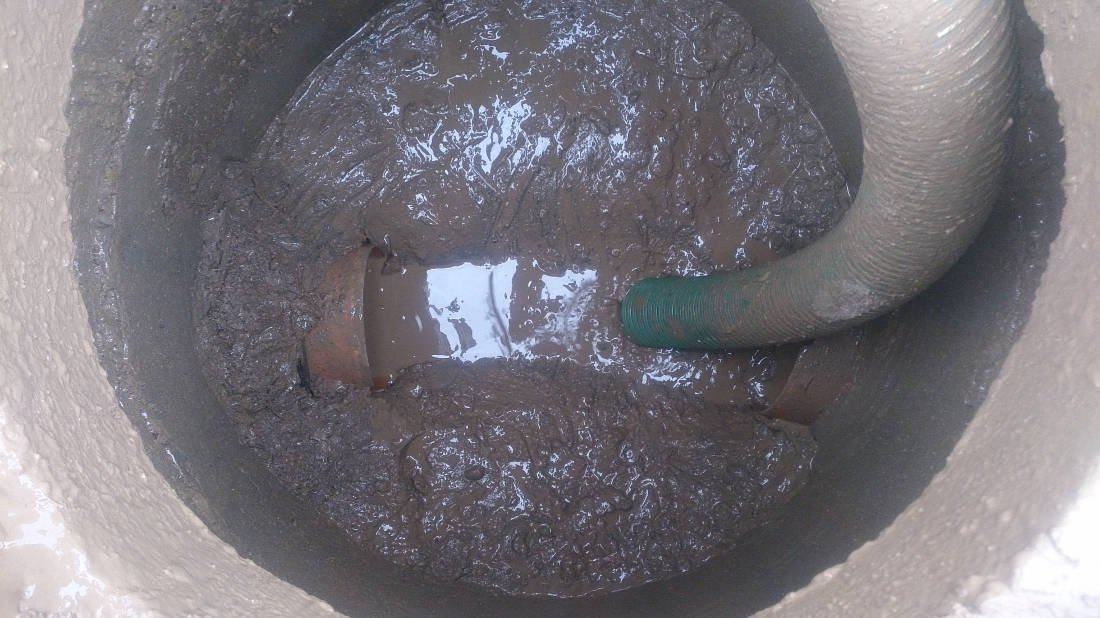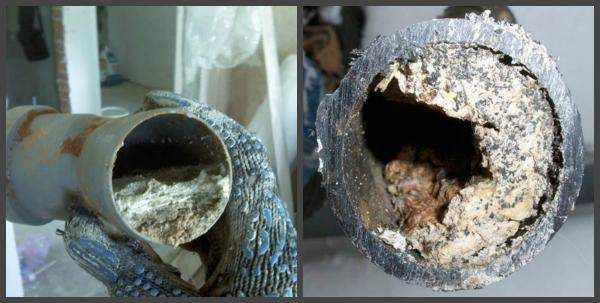The sewerage system must have a sufficient level of tightness. This is a prerequisite for ensuring reliable operation of the collector and parallel compliance with sanitary standards. All sealants for PVC sewer pipes differ from special sealants for pipes made of cast iron, reinforced concrete. In the first case, these are silicone compounds. In the second - mixtures based on cement, epoxy resins, jute, etc.
What is the sealing of the sewer system for?
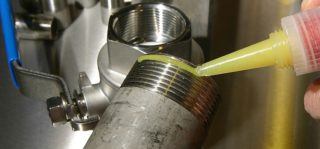
Correct sealing of the collector at the stage of pipeline installation insures in the future against such problems:
- Leakage of drains to the outside. This is especially true for private plots with wells and wells. Wastewater entering the ground will surely seep into the groundwater and further into the source. This can cause serious poisoning, diseases (dysentery, hepatitis A, etc.).
- Leakage of unpleasant odors into the house. Sewer amber is a combination of methane, ammonia and hydrogen sulfide. All together and each separately, they are fraught with danger to health and even human life.
- Groundwater leakage into the collector. This significantly increases the pressure in the system, disrupts its proper functioning.
- Undermining of buildings, destruction of foundations. Due to the external leakage of aggressive drains, the stone elements of the house (basement, basement, foundation) undergo deformation.
- Possibility of leaks at temperature extremes (at the junction of internal and external plastic sewers).
In order to properly seal the joints of sewer pipes, you need to select a tool depending on the material of their manufacture and further operating conditions.
Types of sealants
Sealant (polyurethane and silicone)
The material is more often used for pipes made of polyvinyl chloride or metal for indoor and outdoor installation. Special rubber seals are provided for PVC tubes. The sealant additionally takes care of preventing leaks. All silicone-based products are classified as follows:
- Acidic sealants. They are not used everywhere, they tend to react with aggressive media.
- Neutral. Ideal for sealing sewer lines. They have a higher cost.
All silicone products are made on the basis of rubber. This makes them flexible even when used at low temperatures. In addition, the rubber increases the adhesion of the product to the surface to be treated.
Apply the silicone sealant in one continuous line to avoid gaps when forming the gasket. You can additionally smooth the seam after joining the two elements. To do this, use a special spatula.
Self-adhesive tape
All self-adhesive materials are made on the basis of bitumen-polymer inclusions. Therefore, they resemble rubber in structure. Such waterproofing does not allow water to pass through.
Depending on the temperature regime of operation, the tape is divided into the following types:
- Heat resistant. Designed for sealing systems of transporting media at temperatures up to +1500 degrees.The tape is marked "T".
- Winter. It is used on pipes that are operated in a temperature range of -200 to +100 degrees. It is marked "З".
- Summer. Withstands high temperatures up to +300 degrees. Marked with the letter "L."
To install the collector inside the building, you can use a winter or summer tape. For outdoor wet work, it is better to give preference to winter sealant.
The tape is wound in a spiral with an overlap, avoiding gaps, displacements. Serves up to 30 years, provided that it is correctly installed with a good seal. The tape is considered so reliable that it is used even when laying and sealing oil pipelines.
Sulfur technical
The sealant can be used for metal tubes. It is advisable to mix sulfur in parallel with kaolin when it is heated. The two substances are mixed in a ratio (1:10).
Sealing is carried out as follows:
- Sulfur is heated at a temperature of 140-150 degrees;
- add kaolin;
- the mass is poured into the bell of the system and the elements are joined.
Industrial sulfur has low elasticity.
Epoxy resin
It is a ready-made waterproof glue that can be used when installing a sewage system. During the preparation of the product, you need to mix the epoxy with a hardener according to the instructions. It is important to strictly adhere to the recommendations, otherwise the curing time of the resin may vary.
Bituminous mastic
For sealing cast iron sewer pipes, it is better to use bitumen-based mastics. They have good elasticity, do not allow water to pass through, and serve for more than 20 years. All bituminous sealants are classified according to the installation method - hot and cold. It is more difficult to work with the first ones. And the danger of burns is great. Both types of bituminous products are available commercially in hardware stores.
Portland cement
Good for cast iron or reinforced concrete pipes. The composition of the mixture is calcium silicates, clinker and gypsum. When combined with water, it forms a mass of moderately thick consistency. The finished liquid solution is poured into the sockets. Its complete solidification takes 10-15 minutes. As a result, the sealant is resistant to temperature extremes, water, aggressive media, and ultraviolet light.
Common methods of sealing
- Cold welding with epoxy resin. The pre-treated pipe surfaces are cleaned and degreased. A well-crushed sealant is applied in an even layer around the circumference of the tube. The elements are joined in the socket. Complete drying of the product takes from two hours to a day. For this period, it is better not to use the sewage system.
- Silicone sealant. The most popular of modern materials. It is applied to the pipe surface by analogy with epoxy resin.
Better to take a polyurethane drug. It is less toxic and more durable than acrylic.
Selection recommendations
When choosing a sealing plumbing for a sewage device, you need to pay attention to its such indicators:
- water resistance;
- durability: service life of 15 years or more;
- density: within 0.8 g / cm;
- the volume of additives and impurities: ideally up to 12% of the total volume of the sealant; if this indicator is higher, one can hardly speak of its reliability;
- sanitary marking: especially important if installation work is carried out inside the apartment.
It will be useful to pay attention to the quality certificates. Among the most popular sealants are Moment, Titan, Sanitary Silicone, Ceresit. Among the listed options, the master will be able to choose a tool for sealing pipe joints according to his budget.

